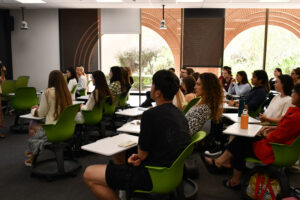Description
For many, the start of a new year signals a renewed interest in healthier eating. But what does that mean today? The research regarding what — and when — we should eat has evolved quite a bit.
Valter Longo, professor of gerontology and biological sciences at USC Leonard Davis School of Gerontology and director of the USC Longevity Institute, and Maryann Pentz, Sidney R. Garfield Chair in Health Sciences at Keck School of Medicine of USC, share how people of all ages can improve their health through better eating. They also discuss tips on what foods to eat — and when — for a longer life.
Who Will Benefit
– Those looking for insights on which types of foods lead to a longer life
– Nutrition and dietetics students hoping to learn more about personalized nutrition
– Those looking to improve their overall health and potentially prevent disease
About Our Featured Faculty
Valter Longo is the Edna M. Jones Chair of Gerontology, professor of gerontology and biological sciences, and director of the Longevity Institute at USC Leonard Davis School of Gerontology, one of the leading centers for research on aging and age-related disease. Longo is also the director of the Longevity and Cancer Program at the IFOM Institute of Molecular Oncology in Milan, Italy. He is author of The Longevity Diet, the internationally renowned, clinically tested, revolutionary diet program to lose weight, fight disease and live a longer, healthier life. He studied biochemistry as an undergraduate at the University of North Texas, and received his PhD in Biochemistry from UCLA.
Maryann Pentz, PhD, is director of the Institute for Prevention Research, co-director of the Center for Health Equity in the Americas, a professor in the Department of Population and Public Health Sciences at USC and the Sidney R. Garfield Chair in Health Sciences. For more than 20 years, her research and program development have focused on community and policy approaches to preventing tobacco, alcohol, drug use and violence in youth. Her findings contributed to the formulation of a U.S. Senate bill and use of evidence-based criteria for appropriating funds for prevention under the Safe and Drug Free Schools Act.





